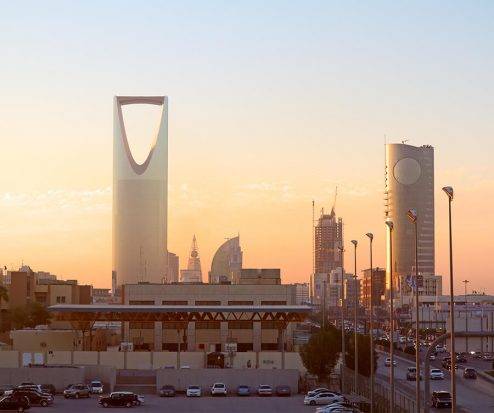The Saudi Export-Import Bank (Saudi Exim) has provided 128% more financing and insurance in the first half of 2024 compared to the same period last year, according to the Saudi Press Agency.
The bank extended SAR16.31bn (US$4.35bn) in credit facilities and export credit insurance, which it says reflects its commitment to supporting non-oil exports from the country. Saudi Exim made export finance disbursements of SAR7.03bn (US$1.87bn) in the first six months of the year, while the value of export credit insurance policies issued during the period totalled SAR 9.28bn (US$2.47bn).
This growth was driven by the government’s support for sustainable development and economic diversification, says Saudi Exim’s CEO Saad Alkhalb in comments reported by the press agency.
Saudi Exim was launched in 2020 to help slash the oil-rich kingdom’s economic dependence on hydrocarbon exports, a key plank of Vision 2030, Saudi Arabia’s plan to diversify the economy and increase inclusion in society.
According to the International Monetary Fund’s 2023 staff report on Saudi Arabia, the country has doubled non-oil revenues since 2017 thanks to “impressive mobilisation efforts”.
The IMF notes that oil and oil products made up nearly 80% of Saudi’s products and exports in 2023, but that share fell to 72.4% in May this year, according to the Saudi Arabian General Authority for Statistics (GAS).
The GAS also notes that 45% of the country’s non-oil exports in May were chemical products and plastics. Both of these categories are heavily reliant on the byproducts of oil extraction and refinement, according to the American Institute of Chemical Engineers, though they are falling as a percentage of non-oil exports.
Saudi Exim has been involved in numerous deals this year focusing on non-oil exports. In May, it extended a US$100mn credit line aimed at boosting non-oil exports to Turkey following January’s US$25mn joint credit line with the International Islamic Trade Finance Corporation to Pakistani lender Bank Al Habib.
More recently, Saudi Exim announced a US$10mn credit line to the Mauritanian Investment Bank to boost non-oil exports to the country as part of its plan to provide a cumulative US$10bn in funding to the continent by 2030.
Despite its expanding scale, Saudi Exim has yet to turn a profit, its 2023 annual report shows. Its cost-to-income ratio is 111%, meaning that the bank spends SAR1.11 for every SAR returned, though this is better than its 148% ratio in 2022.
The post Saudi Exim doubles financing in first half of 2024 appeared first on Global Trade Review (GTR).

